Shows
 Great LivesDr Hannah Critchlow picks Professor Colin BlakemoreProfessor Colin Blakemore was a famous communicator of science, the youngest ever Reith lecturer on the BBC. He was also targeted by members of the animal rights movement, which sent bombs and letters lined with razor blades to his home address. Born in 1944 and brought up in Coventry, Colin Blakemore was committed to brain research and the connection between vision and early development of the brain. Nominating him is the author and neuroscientist Dr Hannah Critchlow, who knew him before he died in 2022.The programme includes contributions from his friends and colleagues, including Professor Barbara Sahakian and...2025-01-1327 min
Great LivesDr Hannah Critchlow picks Professor Colin BlakemoreProfessor Colin Blakemore was a famous communicator of science, the youngest ever Reith lecturer on the BBC. He was also targeted by members of the animal rights movement, which sent bombs and letters lined with razor blades to his home address. Born in 1944 and brought up in Coventry, Colin Blakemore was committed to brain research and the connection between vision and early development of the brain. Nominating him is the author and neuroscientist Dr Hannah Critchlow, who knew him before he died in 2022.The programme includes contributions from his friends and colleagues, including Professor Barbara Sahakian and...2025-01-1327 min New Books in MedicineBarbara J. Sahakian and Christelle Langley, "Brain Boost: Healthy Habits for a Happier Life" (Cambridge UP, 2025)Your mental health is as important as your physical health and, in times of stress, it's vital to have enhanced cognition and reserves of resilience. Brain Boost: Healthy Habits for a Happier Life (Cambridge UP, 2025) is packed with practical tips, based on scientific evidence, that will teach you how to implement lifestyle strategies that will improve your brain health, cognition, and overall wellbeing. Covering the benefits of exercise, diet, sleep, social interactions, kindness, mindfulness, and learning, you will discover how adopting habits to improve these areas of your life at an early age will lead to a longer, healthier li...2025-01-1331 min
New Books in MedicineBarbara J. Sahakian and Christelle Langley, "Brain Boost: Healthy Habits for a Happier Life" (Cambridge UP, 2025)Your mental health is as important as your physical health and, in times of stress, it's vital to have enhanced cognition and reserves of resilience. Brain Boost: Healthy Habits for a Happier Life (Cambridge UP, 2025) is packed with practical tips, based on scientific evidence, that will teach you how to implement lifestyle strategies that will improve your brain health, cognition, and overall wellbeing. Covering the benefits of exercise, diet, sleep, social interactions, kindness, mindfulness, and learning, you will discover how adopting habits to improve these areas of your life at an early age will lead to a longer, healthier li...2025-01-1331 min Exchanges: A Cambridge UP PodcastBarbara J. Sahakian and Christelle Langley, "Brain Boost: Healthy Habits for a Happier Life" (Cambridge UP, 2025)Your mental health is as important as your physical health and, in times of stress, it's vital to have enhanced cognition and reserves of resilience. Brain Boost: Healthy Habits for a Happier Life (Cambridge UP, 2025) is packed with practical tips, based on scientific evidence, that will teach you how to implement lifestyle strategies that will improve your brain health, cognition, and overall wellbeing. Covering the benefits of exercise, diet, sleep, social interactions, kindness, mindfulness, and learning, you will discover how adopting habits to improve these areas of your life at an early age will lead to a longer, healthier li...2025-01-1330 min
Exchanges: A Cambridge UP PodcastBarbara J. Sahakian and Christelle Langley, "Brain Boost: Healthy Habits for a Happier Life" (Cambridge UP, 2025)Your mental health is as important as your physical health and, in times of stress, it's vital to have enhanced cognition and reserves of resilience. Brain Boost: Healthy Habits for a Happier Life (Cambridge UP, 2025) is packed with practical tips, based on scientific evidence, that will teach you how to implement lifestyle strategies that will improve your brain health, cognition, and overall wellbeing. Covering the benefits of exercise, diet, sleep, social interactions, kindness, mindfulness, and learning, you will discover how adopting habits to improve these areas of your life at an early age will lead to a longer, healthier li...2025-01-1330 min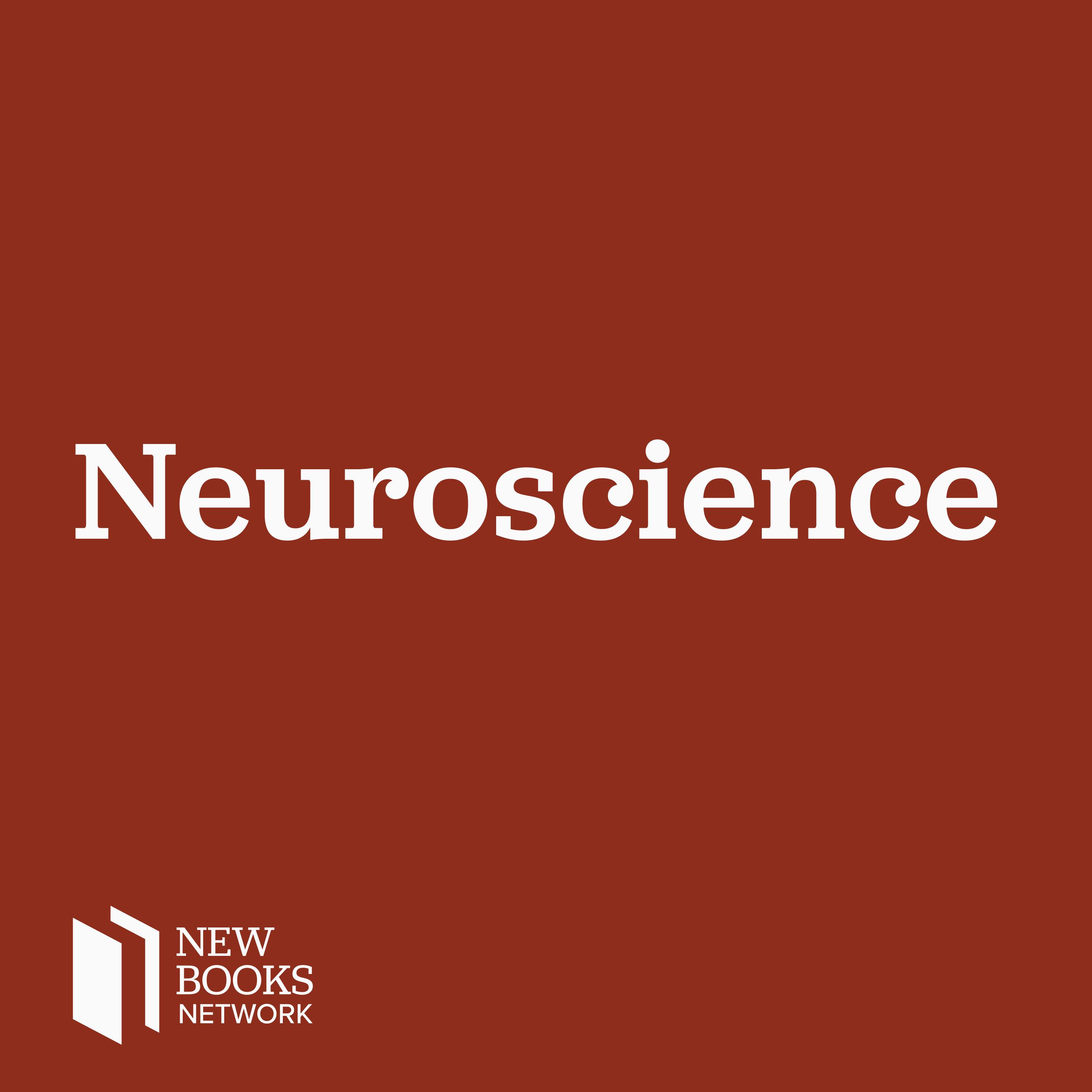 New Books in NeuroscienceBarbara J. Sahakian and Christelle Langley, "Brain Boost: Healthy Habits for a Happier Life" (Cambridge UP, 2025)Your mental health is as important as your physical health and, in times of stress, it's vital to have enhanced cognition and reserves of resilience. Brain Boost: Healthy Habits for a Happier Life (Cambridge UP, 2025) is packed with practical tips, based on scientific evidence, that will teach you how to implement lifestyle strategies that will improve your brain health, cognition, and overall wellbeing. Covering the benefits of exercise, diet, sleep, social interactions, kindness, mindfulness, and learning, you will discover how adopting habits to improve these areas of your life at an early age will lead to a longer, healthier li...2025-01-1331 min
New Books in NeuroscienceBarbara J. Sahakian and Christelle Langley, "Brain Boost: Healthy Habits for a Happier Life" (Cambridge UP, 2025)Your mental health is as important as your physical health and, in times of stress, it's vital to have enhanced cognition and reserves of resilience. Brain Boost: Healthy Habits for a Happier Life (Cambridge UP, 2025) is packed with practical tips, based on scientific evidence, that will teach you how to implement lifestyle strategies that will improve your brain health, cognition, and overall wellbeing. Covering the benefits of exercise, diet, sleep, social interactions, kindness, mindfulness, and learning, you will discover how adopting habits to improve these areas of your life at an early age will lead to a longer, healthier li...2025-01-1331 min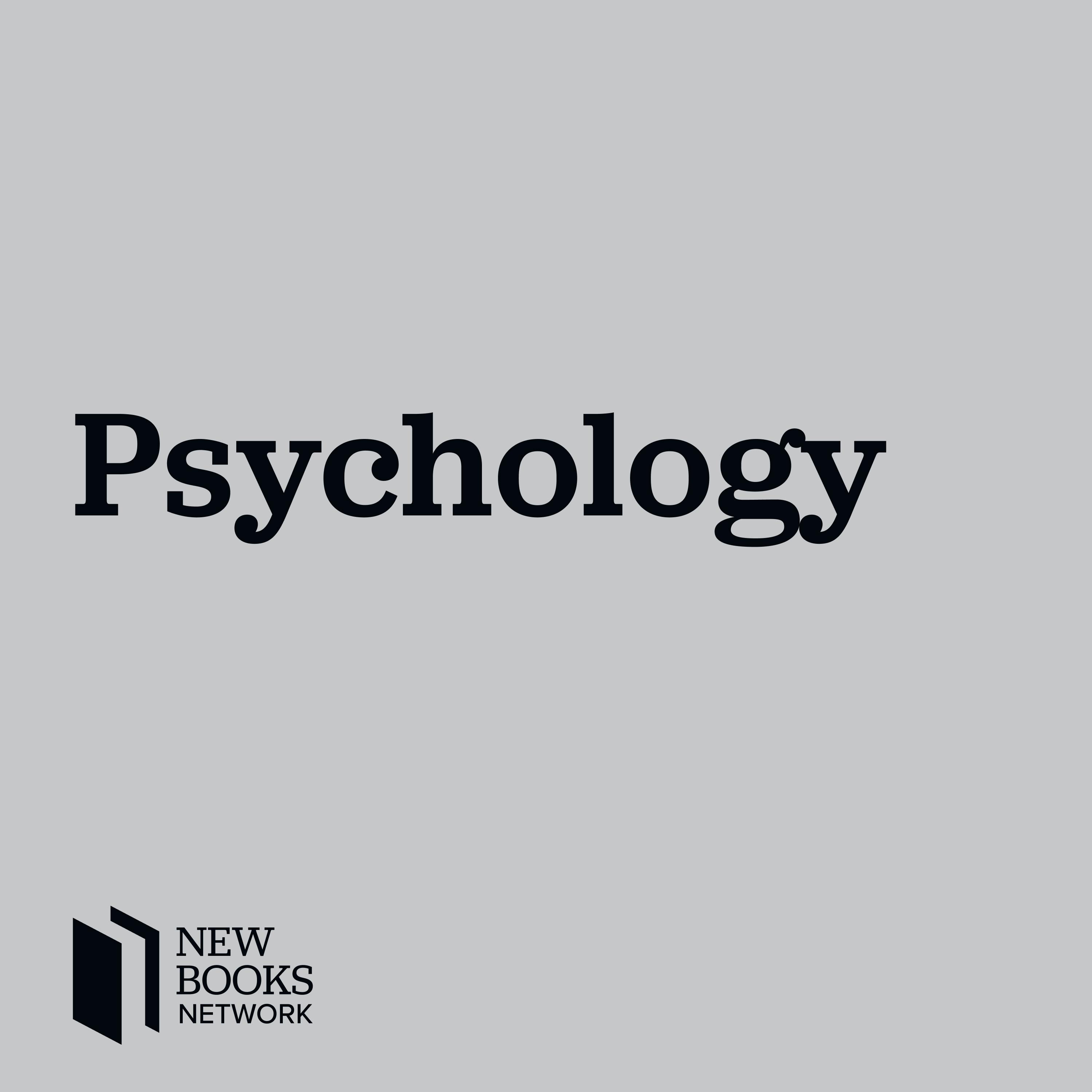 New Books in PsychologyBarbara J. Sahakian and Christelle Langley, "Brain Boost: Healthy Habits for a Happier Life" (Cambridge UP, 2025)Your mental health is as important as your physical health and, in times of stress, it's vital to have enhanced cognition and reserves of resilience. Brain Boost: Healthy Habits for a Happier Life (Cambridge UP, 2025) is packed with practical tips, based on scientific evidence, that will teach you how to implement lifestyle strategies that will improve your brain health, cognition, and overall wellbeing. Covering the benefits of exercise, diet, sleep, social interactions, kindness, mindfulness, and learning, you will discover how adopting habits to improve these areas of your life at an early age will lead to a longer, healthier li...2025-01-1331 min
New Books in PsychologyBarbara J. Sahakian and Christelle Langley, "Brain Boost: Healthy Habits for a Happier Life" (Cambridge UP, 2025)Your mental health is as important as your physical health and, in times of stress, it's vital to have enhanced cognition and reserves of resilience. Brain Boost: Healthy Habits for a Happier Life (Cambridge UP, 2025) is packed with practical tips, based on scientific evidence, that will teach you how to implement lifestyle strategies that will improve your brain health, cognition, and overall wellbeing. Covering the benefits of exercise, diet, sleep, social interactions, kindness, mindfulness, and learning, you will discover how adopting habits to improve these areas of your life at an early age will lead to a longer, healthier li...2025-01-1331 min 10-Minute TalksWhat does a neuropsychologist do?What exactly is the work of a neuropsychologist? In this 10-Minute Talk, Professor Barbara Sahakian FBA unpacks some of her key work over the years and more recent ventures – from developing early models of memory testing to now transforming psychological tests into game apps. Speaker: Professor Barbara Sahakian FBA, Professor of Clinical Neuropsychology, Department of Psychiatry and MRC/Wellcome Trust Behavioural and Clinical Neuroscience Institute, University of Cambridge This podcast is for informative and educational purposes. Please find a blog version of this talk here: https://www.thebritishacademy.ac.uk/blog/what-does-a-neuropsychologist-do/?utm_source...2024-11-0106 min
10-Minute TalksWhat does a neuropsychologist do?What exactly is the work of a neuropsychologist? In this 10-Minute Talk, Professor Barbara Sahakian FBA unpacks some of her key work over the years and more recent ventures – from developing early models of memory testing to now transforming psychological tests into game apps. Speaker: Professor Barbara Sahakian FBA, Professor of Clinical Neuropsychology, Department of Psychiatry and MRC/Wellcome Trust Behavioural and Clinical Neuroscience Institute, University of Cambridge This podcast is for informative and educational purposes. Please find a blog version of this talk here: https://www.thebritishacademy.ac.uk/blog/what-does-a-neuropsychologist-do/?utm_source...2024-11-0106 min The Naked Scientists PodcastGambling addiction: Hidden harmsThis time, we're looking at gambling addiction and the associated harms. We hear from Bianca, a recovering gambling addict, about the deceit which characterised her experiences with betting, and why this is shared by many like here. Then, with Barbara Sahakian from the University of Cambridge, we learn about the biological and environmental factors which may lead to problem gambling, and hear from the perspective of the industry with Dan Waugh of Regulus. Finally, what treatments are out there for gambling addiction? Emma Ryan from the UK's first Primary Care Gambling Service tells us. Like this podcast? Please help us...2024-06-1130 min
The Naked Scientists PodcastGambling addiction: Hidden harmsThis time, we're looking at gambling addiction and the associated harms. We hear from Bianca, a recovering gambling addict, about the deceit which characterised her experiences with betting, and why this is shared by many like here. Then, with Barbara Sahakian from the University of Cambridge, we learn about the biological and environmental factors which may lead to problem gambling, and hear from the perspective of the industry with Dan Waugh of Regulus. Finally, what treatments are out there for gambling addiction? Emma Ryan from the UK's first Primary Care Gambling Service tells us. Like this podcast? Please help us...2024-06-1130 min Science WeeklyHow to stop doomscrolling and reclaim your brainIf you’ve made a resolution to spend less time on your phone this year, help is at hand. The Guardian has launched a new newsletter, Reclaim your brain. Its co-writer and expert coach Catherine Price tells Madeleine Finlay how her own excessive phone use inspired her to investigate the science behind our relationships with our devices, and what we know about how to break the cycle. And Prof Barbara Sahakian of Cambridge University explains why many of us are drawn to looking at bad news on our phones, and what it’s doing to us. Help support our independent jour...2024-01-1816 min
Science WeeklyHow to stop doomscrolling and reclaim your brainIf you’ve made a resolution to spend less time on your phone this year, help is at hand. The Guardian has launched a new newsletter, Reclaim your brain. Its co-writer and expert coach Catherine Price tells Madeleine Finlay how her own excessive phone use inspired her to investigate the science behind our relationships with our devices, and what we know about how to break the cycle. And Prof Barbara Sahakian of Cambridge University explains why many of us are drawn to looking at bad news on our phones, and what it’s doing to us. Help support our independent jour...2024-01-1816 min Road to ResilienceWhat Kids Teach Us About ResilienceWhat can children and young adults teach grown-ups about resilience? Barbara Sahakian, PhD, has some answers. Dr. Sahakian is a Professor of Clinical Neuropsychology at the University of Cambridge and has authored and coauthored multiple studies over the years, including a 2023 study on how parents may build resilience and creativity in kids with one simple daily activity. Visit https://www.mountsinai.org/clinical-trials to see if you're eligible to enroll in a clinical trial with the Mount Sinai Health System. Check out more episodes of Road to Resilience —as well as guest pictures, transcripts, and mor...2023-11-2838 min
Road to ResilienceWhat Kids Teach Us About ResilienceWhat can children and young adults teach grown-ups about resilience? Barbara Sahakian, PhD, has some answers. Dr. Sahakian is a Professor of Clinical Neuropsychology at the University of Cambridge and has authored and coauthored multiple studies over the years, including a 2023 study on how parents may build resilience and creativity in kids with one simple daily activity. Visit https://www.mountsinai.org/clinical-trials to see if you're eligible to enroll in a clinical trial with the Mount Sinai Health System. Check out more episodes of Road to Resilience —as well as guest pictures, transcripts, and mor...2023-11-2838 min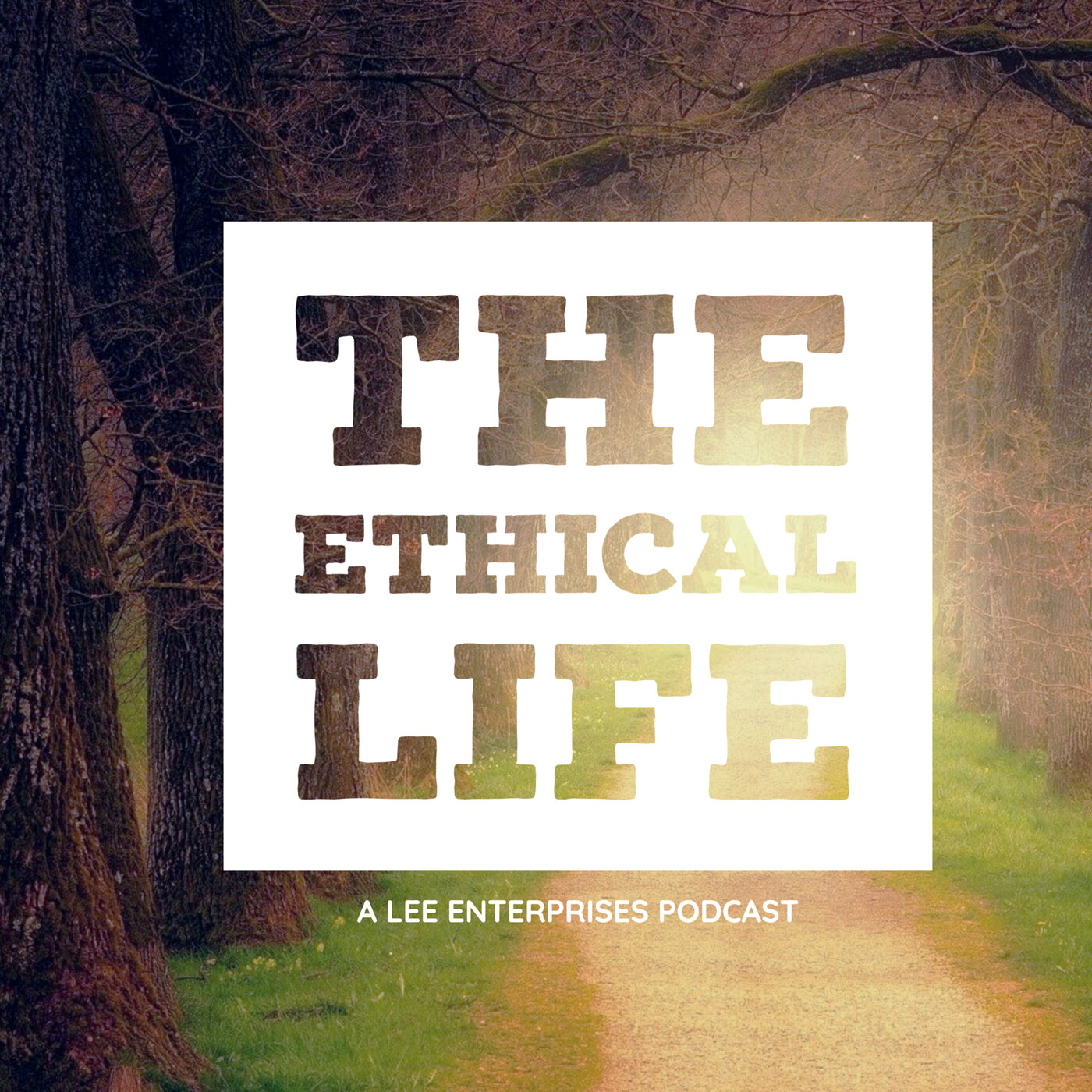 The Ethical LifeWhy do so many adults have so few friends?Episode 110: Countless studies have shown that there has been a steep drop in adult friendships over the past decade, and this decline is more serious that it might first sound. Research shows that being lonely can have negative effects on public health, and has been compared to smoking 15 cigarettes a day.
Hosts Richard Kyte and Scott Rada discuss what's behind this trend and what can be done to reverse it.
Links to stories discussed during the podcast:
How to find authentic connections in a digital world, by Richard Kyte
Americans more t...2023-10-0442 min
The Ethical LifeWhy do so many adults have so few friends?Episode 110: Countless studies have shown that there has been a steep drop in adult friendships over the past decade, and this decline is more serious that it might first sound. Research shows that being lonely can have negative effects on public health, and has been compared to smoking 15 cigarettes a day.
Hosts Richard Kyte and Scott Rada discuss what's behind this trend and what can be done to reverse it.
Links to stories discussed during the podcast:
How to find authentic connections in a digital world, by Richard Kyte
Americans more t...2023-10-0442 min AnalysisThe Democratic BrainOur brain is a wonderful machine, but it can also short-circuit. What happens to us when emotions and politics intersect, when the democratic, listening brain is cut off, or when we succumb to ‘hate speech’? Research using the latest brain scanners shows that the older part of the brain called the amygdala is ‘triggered’ by emotional responses out of proportion to the impacting stimulus. So, perhaps are we after wolves in human clothing? Not necessarily; we have also developed the frontal cortex which the scans show is stimulated by rational argument. What can scanning the brain reveal about our politica...2023-10-0228 min
AnalysisThe Democratic BrainOur brain is a wonderful machine, but it can also short-circuit. What happens to us when emotions and politics intersect, when the democratic, listening brain is cut off, or when we succumb to ‘hate speech’? Research using the latest brain scanners shows that the older part of the brain called the amygdala is ‘triggered’ by emotional responses out of proportion to the impacting stimulus. So, perhaps are we after wolves in human clothing? Not necessarily; we have also developed the frontal cortex which the scans show is stimulated by rational argument. What can scanning the brain reveal about our politica...2023-10-0228 min Neurology® PodcastNeurology 2022 Recall: Topics in Dementia2022-12-021h 03
Neurology® PodcastNeurology 2022 Recall: Topics in Dementia2022-12-021h 03 Neurology® PodcastAssociations of Social Isolation and Loneliness in Dementia Dr. Gregg Day talks with Prof. Barbara Sahakian about the associations of social isolation and loneliness with later dementia. Read the full article in Neurology. This podcast is sponsored by argenx. Visit www.vyvgarthcp.com for more information.2022-07-1816 min
Neurology® PodcastAssociations of Social Isolation and Loneliness in Dementia Dr. Gregg Day talks with Prof. Barbara Sahakian about the associations of social isolation and loneliness with later dementia. Read the full article in Neurology. This podcast is sponsored by argenx. Visit www.vyvgarthcp.com for more information.2022-07-1816 min NaukowoJak postrzegamy rytm, ruch oraz samotność i gdzie schowały się białe misie - #028Jak rytm, ruch i samotność wpływają na nasze życie? Gdzie przeniosły się niedźwiedzie polarne i jak sztuczna inteligencja zrozumiała chemię?Jeśli uznasz, że warto wspierać ten projekt to zapraszam do serwisu Patronite, każda dobrowolna wpłata od słuchaczy pozwoli mi na rozwój i doskonalenie tego podkastu, bardzo dziękuję za każde wsparcie!Zapraszam również na Facebooka, Twittera i Instagrama, każdy lajk i udostępnienie pomoże w szerszym dotarciu do słuchaczy, a to jest teraz moim głównym celem :) Na stronie Naukowo.net znajdziesz więce...2022-06-1819 min
NaukowoJak postrzegamy rytm, ruch oraz samotność i gdzie schowały się białe misie - #028Jak rytm, ruch i samotność wpływają na nasze życie? Gdzie przeniosły się niedźwiedzie polarne i jak sztuczna inteligencja zrozumiała chemię?Jeśli uznasz, że warto wspierać ten projekt to zapraszam do serwisu Patronite, każda dobrowolna wpłata od słuchaczy pozwoli mi na rozwój i doskonalenie tego podkastu, bardzo dziękuję za każde wsparcie!Zapraszam również na Facebooka, Twittera i Instagrama, każdy lajk i udostępnienie pomoże w szerszym dotarciu do słuchaczy, a to jest teraz moim głównym celem :) Na stronie Naukowo.net znajdziesz więce...2022-06-1819 min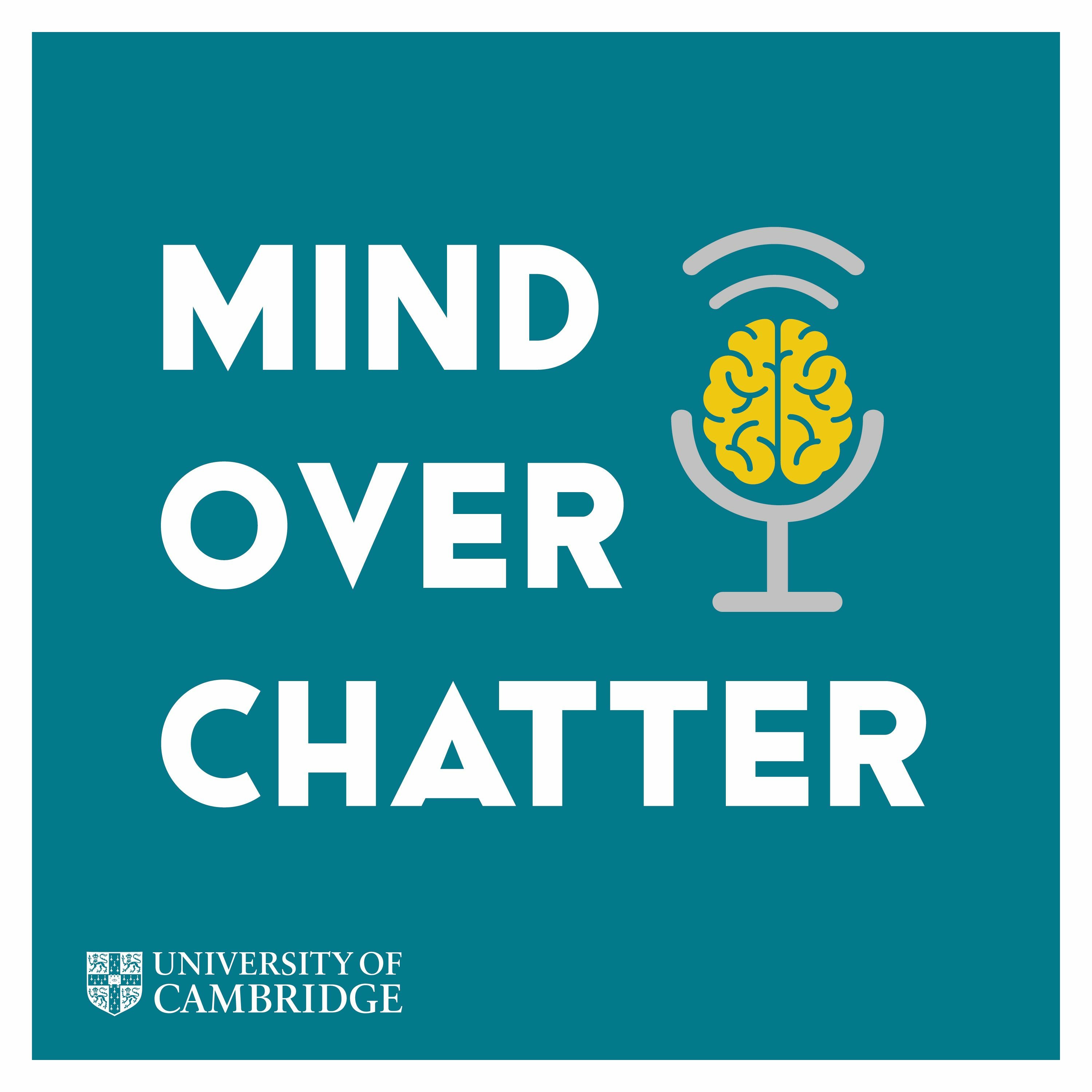 University of CambridgeDementia: risks, diagnosis and preventionWhat causes dementia? And how do we diagnose and treat it? Is there anything we can do to stop ourselves from developing dementia? These are the crucial questions we’ll be exploring with clinical neuropsychologist Barbara Sahakian, sociologist Richard Milne, and neurologist James Rowe. In this episode, we’ll find out more about what dementia actually is, some surprising factors that increase a person’s risk of developing dementia, and computer games that can actually help detect and diagnose dementia.
This episode was produced by Nick Saffell, James Dolan, Naomi Clements-Brod and Annie Thwaite.
Please take our survey!
How did you fi...2022-01-2756 min
University of CambridgeDementia: risks, diagnosis and preventionWhat causes dementia? And how do we diagnose and treat it? Is there anything we can do to stop ourselves from developing dementia? These are the crucial questions we’ll be exploring with clinical neuropsychologist Barbara Sahakian, sociologist Richard Milne, and neurologist James Rowe. In this episode, we’ll find out more about what dementia actually is, some surprising factors that increase a person’s risk of developing dementia, and computer games that can actually help detect and diagnose dementia.
This episode was produced by Nick Saffell, James Dolan, Naomi Clements-Brod and Annie Thwaite.
Please take our survey!
How did you fi...2022-01-2756 min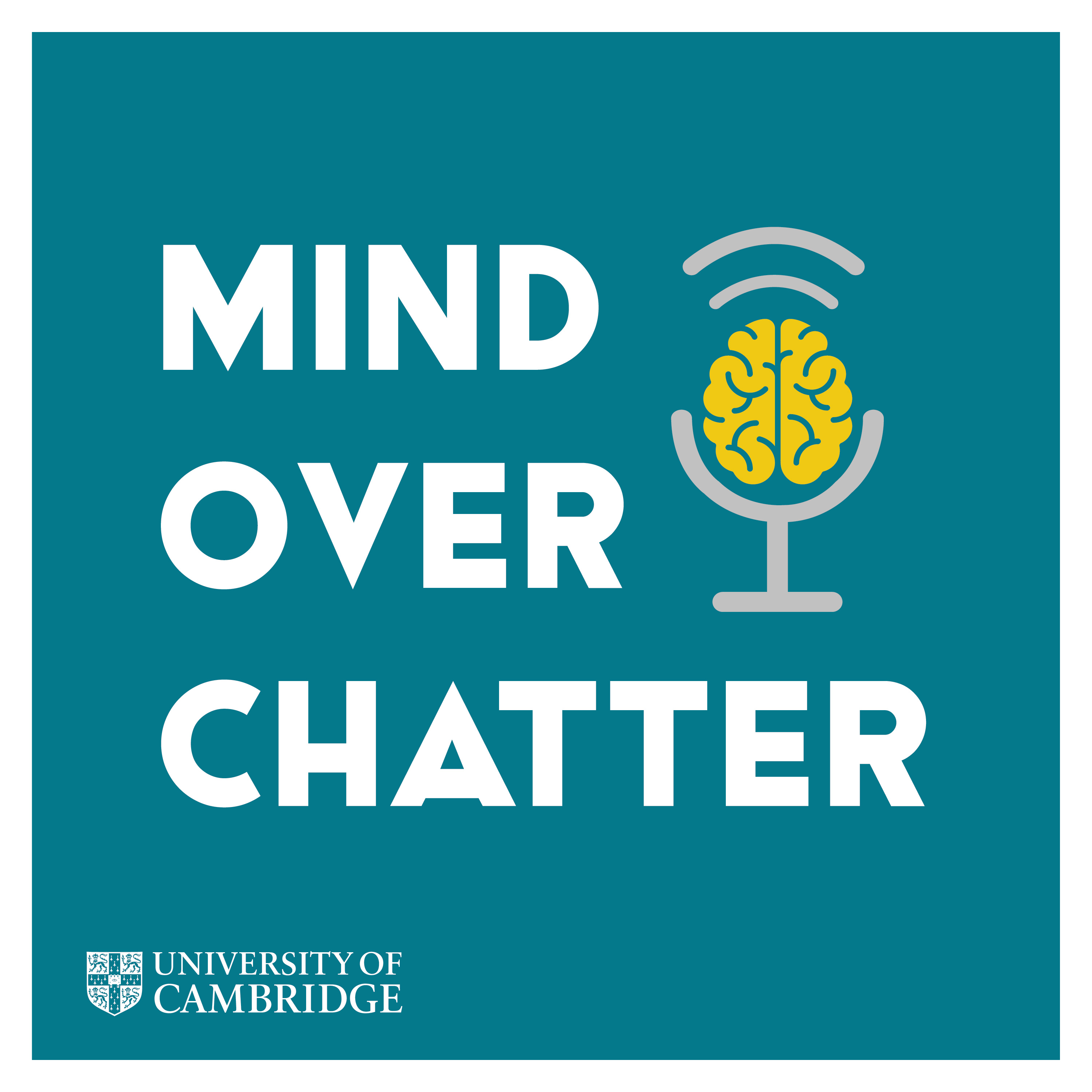 Mind Over ChatterDementia: risks, diagnosis and preventionWhat causes dementia? And how do we diagnose and treat it? Is there anything we can do to stop ourselves from developing dementia? These are the crucial questions we’ll be exploring with clinical neuropsychologist Barbara Sahakian, sociologist Richard Milne, and neurologist James Rowe. In this episode, we’ll find out more about what dementia actually is, some surprising factors that increase a person’s risk of developing dementia, and computer games that can actually help detect and diagnose dementia.This episode was produced by Nick Saffell, James Dolan, Naomi Clements-Brod and Annie Thwaite. Please take ou...2022-01-2756 min
Mind Over ChatterDementia: risks, diagnosis and preventionWhat causes dementia? And how do we diagnose and treat it? Is there anything we can do to stop ourselves from developing dementia? These are the crucial questions we’ll be exploring with clinical neuropsychologist Barbara Sahakian, sociologist Richard Milne, and neurologist James Rowe. In this episode, we’ll find out more about what dementia actually is, some surprising factors that increase a person’s risk of developing dementia, and computer games that can actually help detect and diagnose dementia.This episode was produced by Nick Saffell, James Dolan, Naomi Clements-Brod and Annie Thwaite. Please take ou...2022-01-2756 min The Conversation WeeklyNew clues to consciousness + AI helps finish Beethoven's 10th symphonyWhat’s happening in our brains to create consciousness? In this episode we hear from two scientists uncovering clues to where dopamine fits into this mystery. It could help the recovery of people with severe brain injuries. Featuring Emmanual Stamatakis, who leads the cognition and consciousness imaging group at the Division of Anaesthesia, University of Cambridge in the UK and Leandro Sanz, a medical doctor and PhD candidate in medical sciences at the Coma Science Group at the University of Liège in Belgium.Plus, the story of how artificial intelligence – and its human...2021-10-0747 min
The Conversation WeeklyNew clues to consciousness + AI helps finish Beethoven's 10th symphonyWhat’s happening in our brains to create consciousness? In this episode we hear from two scientists uncovering clues to where dopamine fits into this mystery. It could help the recovery of people with severe brain injuries. Featuring Emmanual Stamatakis, who leads the cognition and consciousness imaging group at the Division of Anaesthesia, University of Cambridge in the UK and Leandro Sanz, a medical doctor and PhD candidate in medical sciences at the Coma Science Group at the University of Liège in Belgium.Plus, the story of how artificial intelligence – and its human...2021-10-0747 min Curiosity WeeklyCognitive Flexibility, Arctic Dinosaurs, Noctilucent CloudsLearn about how cognitive flexibility helps you learn; why dinosaurs may have been warm-blooded; and noctilucent clouds.
A high IQ might mean you're smart, but high "cognitive flexibility" means you can learn by Grant Currin
Barbara Jacquelyn Sahakian, Christelle Langley, & Leong, V. (2021, June 23). IQ tests can’t measure it, but “cognitive flexibility” is key to learning and creativity. The Conversation. https://theconversation.com/iq-tests-cant-measure-it-but-cognitive-flexibility-is-key-to-learning-and-creativity-163284
3 Ways to Improve Your Cognitive Flexibility. (2019). Psychology Today. https://www.psychologytoday.com/us/blog/wild-connections/201912/3-ways-improve-your-cognitive-flexibility
Dajani, D. R., & Uddin, L. Q. (2015). Demystifying cognitive flexibility: Implications for clinical and developmental neuroscience. Trends in Neurosciences, 38(9), 571–578. https://doi.org/10.1016/j...2021-08-1613 min
Curiosity WeeklyCognitive Flexibility, Arctic Dinosaurs, Noctilucent CloudsLearn about how cognitive flexibility helps you learn; why dinosaurs may have been warm-blooded; and noctilucent clouds.
A high IQ might mean you're smart, but high "cognitive flexibility" means you can learn by Grant Currin
Barbara Jacquelyn Sahakian, Christelle Langley, & Leong, V. (2021, June 23). IQ tests can’t measure it, but “cognitive flexibility” is key to learning and creativity. The Conversation. https://theconversation.com/iq-tests-cant-measure-it-but-cognitive-flexibility-is-key-to-learning-and-creativity-163284
3 Ways to Improve Your Cognitive Flexibility. (2019). Psychology Today. https://www.psychologytoday.com/us/blog/wild-connections/201912/3-ways-improve-your-cognitive-flexibility
Dajani, D. R., & Uddin, L. Q. (2015). Demystifying cognitive flexibility: Implications for clinical and developmental neuroscience. Trends in Neurosciences, 38(9), 571–578. https://doi.org/10.1016/j...2021-08-1613 min Politics of COVID-19 Podcast - The SyllabusSupercomputers seeking solutions for Covid-19 Podcast: Digital Planet (LS 51 · TOP 0.5% what is this?)Episode: Supercomputers seeking solutions for Covid-19Pub date: 2020-04-14Get Podcast Transcript →powered by Listen411 - fast audio-to-text and summarizationSupercomputing power for Covid-19 solutions
The world’s most powerful supercomputers are being used for urgent investigations into the Sars-Cov-2 virus. Professor Peter Coveney from the UCL Centre for Computational Science is part of this consortium of hundreds of scientists across the globe, and tells Gareth how this phenomenal amount of computer power is already trying to identify potential treatments and vacci...2020-04-1644 min
Politics of COVID-19 Podcast - The SyllabusSupercomputers seeking solutions for Covid-19 Podcast: Digital Planet (LS 51 · TOP 0.5% what is this?)Episode: Supercomputers seeking solutions for Covid-19Pub date: 2020-04-14Get Podcast Transcript →powered by Listen411 - fast audio-to-text and summarizationSupercomputing power for Covid-19 solutions
The world’s most powerful supercomputers are being used for urgent investigations into the Sars-Cov-2 virus. Professor Peter Coveney from the UCL Centre for Computational Science is part of this consortium of hundreds of scientists across the globe, and tells Gareth how this phenomenal amount of computer power is already trying to identify potential treatments and vacci...2020-04-1644 min Digital PlanetSupercomputers seeking solutions for Covid-19Supercomputing power for Covid-19 solutions
The world’s most powerful supercomputers are being used for urgent investigations into the Sars-Cov-2 virus. Professor Peter Coveney from the UCL Centre for Computational Science is part of this consortium of hundreds of scientists across the globe, and tells Gareth how this phenomenal amount of computer power is already trying to identify potential treatments and vaccine candidates for Covid-19. Hot and Cold Cognition
Gareth and Bill meet Professor Barbara Sahakian at Cambridge University to discuss her work on hot and cold cognition. Cold cognition is the mechanics of AI. Hot cognition is...2020-04-1444 min
Digital PlanetSupercomputers seeking solutions for Covid-19Supercomputing power for Covid-19 solutions
The world’s most powerful supercomputers are being used for urgent investigations into the Sars-Cov-2 virus. Professor Peter Coveney from the UCL Centre for Computational Science is part of this consortium of hundreds of scientists across the globe, and tells Gareth how this phenomenal amount of computer power is already trying to identify potential treatments and vaccine candidates for Covid-19. Hot and Cold Cognition
Gareth and Bill meet Professor Barbara Sahakian at Cambridge University to discuss her work on hot and cold cognition. Cold cognition is the mechanics of AI. Hot cognition is...2020-04-1444 min Talks at GoogleEp79 - Barbara Sahakian: "Sex, Lies, and Brain Scans: How fMRI Reveals What Really Goes on in Our Minds"Barbara Sahakian is Professor of Clinical Neuropsychology at Cambridge In this talk, she discusses her book "Sex, Lies, and Brain Scans: How fMRI Reveals What Really Goes on in Our Minds". With co-author Julia Gottwald, she takes readers beyond the media headlines, considering what the technique of fMRI entails, and what information it can give us. They show which applications are possible today, which ones are science fiction, and also discuss the important ethical questions these techniques raise.2020-02-1857 min
Talks at GoogleEp79 - Barbara Sahakian: "Sex, Lies, and Brain Scans: How fMRI Reveals What Really Goes on in Our Minds"Barbara Sahakian is Professor of Clinical Neuropsychology at Cambridge In this talk, she discusses her book "Sex, Lies, and Brain Scans: How fMRI Reveals What Really Goes on in Our Minds". With co-author Julia Gottwald, she takes readers beyond the media headlines, considering what the technique of fMRI entails, and what information it can give us. They show which applications are possible today, which ones are science fiction, and also discuss the important ethical questions these techniques raise.2020-02-1857 min Talks at GoogleEp79 - Barbara Sahakian: "Sex, Lies, and Brain Scans: How fMRI Reveals What Really Goes on in Our Minds"Barbara Sahakian is Professor of Clinical Neuropsychology at Cambridge, Past-President of the International Neuroethics Society, Past-President of the British Association for Psychopharmacology, and a Fellow of the Academy of Medical Sciences. In this talk, she discusses her book "Sex, Lies, and Brain Scans: How fMRI Reveals What Really Goes on in Our Minds". With co-author Julia Gottwald, she takes readers beyond the media headlines, considering what the technique of fMRI entails, and what information it can give us. They show which applications are possible today, which ones are science fiction, and also discuss the important ethical questions...2020-02-1857 min
Talks at GoogleEp79 - Barbara Sahakian: "Sex, Lies, and Brain Scans: How fMRI Reveals What Really Goes on in Our Minds"Barbara Sahakian is Professor of Clinical Neuropsychology at Cambridge, Past-President of the International Neuroethics Society, Past-President of the British Association for Psychopharmacology, and a Fellow of the Academy of Medical Sciences. In this talk, she discusses her book "Sex, Lies, and Brain Scans: How fMRI Reveals What Really Goes on in Our Minds". With co-author Julia Gottwald, she takes readers beyond the media headlines, considering what the technique of fMRI entails, and what information it can give us. They show which applications are possible today, which ones are science fiction, and also discuss the important ethical questions...2020-02-1857 min Título do siteEp79 - Barbara Sahakian: "Sex, Lies, and Brain Scans: How fMRI Reveals What Really Goes on in Our Minds"Barbara Sahakian is Professor of Clinical Neuropsychology at Cambridge In this talk, she discusses her book "Sex, Lies, and Brain Scans: How fMRI Reveals What Really Goes on in Our Minds". With co-author Julia Gottwald, she takes readers beyond the media headlines, considering what the technique of fMRI entails, and what information it can give us. They show which applications are possible today, which ones are science fiction, and also discuss the important ethical questions these techniques raise.2020-02-1857 min
Título do siteEp79 - Barbara Sahakian: "Sex, Lies, and Brain Scans: How fMRI Reveals What Really Goes on in Our Minds"Barbara Sahakian is Professor of Clinical Neuropsychology at Cambridge In this talk, she discusses her book "Sex, Lies, and Brain Scans: How fMRI Reveals What Really Goes on in Our Minds". With co-author Julia Gottwald, she takes readers beyond the media headlines, considering what the technique of fMRI entails, and what information it can give us. They show which applications are possible today, which ones are science fiction, and also discuss the important ethical questions these techniques raise.2020-02-1857 min Talks at GoogleBarbara Sahakian: ""Sex, Lies, and Brain Scans: How fMRI Reveals What Really Goes on in Our Minds"Barbara Sahakian is Professor of Clinical Neuropsychology at Cambridge, Past-President of the International Neuroethics Society, Past-President of the British Association for Psychopharmacology, and a Fellow of the Academy of Medical Sciences. In this talk, she discusses her book "Sex, Lies, and Brain Scans: How fMRI Reveals What Really Goes on in Our Minds". With co-author Julia Gottwald, she takes readers beyond the media headlines, considering what the technique of fMRI entails, and what information it can give us. They show which applications are possible today, which ones are science fiction, and also discuss the important ethical questions...2020-02-1857 min
Talks at GoogleBarbara Sahakian: ""Sex, Lies, and Brain Scans: How fMRI Reveals What Really Goes on in Our Minds"Barbara Sahakian is Professor of Clinical Neuropsychology at Cambridge, Past-President of the International Neuroethics Society, Past-President of the British Association for Psychopharmacology, and a Fellow of the Academy of Medical Sciences. In this talk, she discusses her book "Sex, Lies, and Brain Scans: How fMRI Reveals What Really Goes on in Our Minds". With co-author Julia Gottwald, she takes readers beyond the media headlines, considering what the technique of fMRI entails, and what information it can give us. They show which applications are possible today, which ones are science fiction, and also discuss the important ethical questions...2020-02-1857 min The EditionSmash and grab: can the Remain alliance last?A cross-party remain alliance successfully tied Boris Johnson’s hands in parliament last week, but with a general election looming, will this unlikely coalition last (00:30)? We also find out about ‘study drugs’ – what are the little blue pills that American students are turning to (17:35)? And last, is Boris Johnson anything like his classical heroes (31:00)?With Katy Balls, Polly Mackenzie, Madeleine Kearns, Dr Barbara Sahakian, Harry Mount, and Daisy Dunn.Presented by Cindy Yu and Isabel Hardman.Produced by Cindy Yu and Adam Cherry.Become a Spectator subscriber today to access this podcast without adverts...2019-09-1241 min
The EditionSmash and grab: can the Remain alliance last?A cross-party remain alliance successfully tied Boris Johnson’s hands in parliament last week, but with a general election looming, will this unlikely coalition last (00:30)? We also find out about ‘study drugs’ – what are the little blue pills that American students are turning to (17:35)? And last, is Boris Johnson anything like his classical heroes (31:00)?With Katy Balls, Polly Mackenzie, Madeleine Kearns, Dr Barbara Sahakian, Harry Mount, and Daisy Dunn.Presented by Cindy Yu and Isabel Hardman.Produced by Cindy Yu and Adam Cherry.Become a Spectator subscriber today to access this podcast without adverts...2019-09-1241 min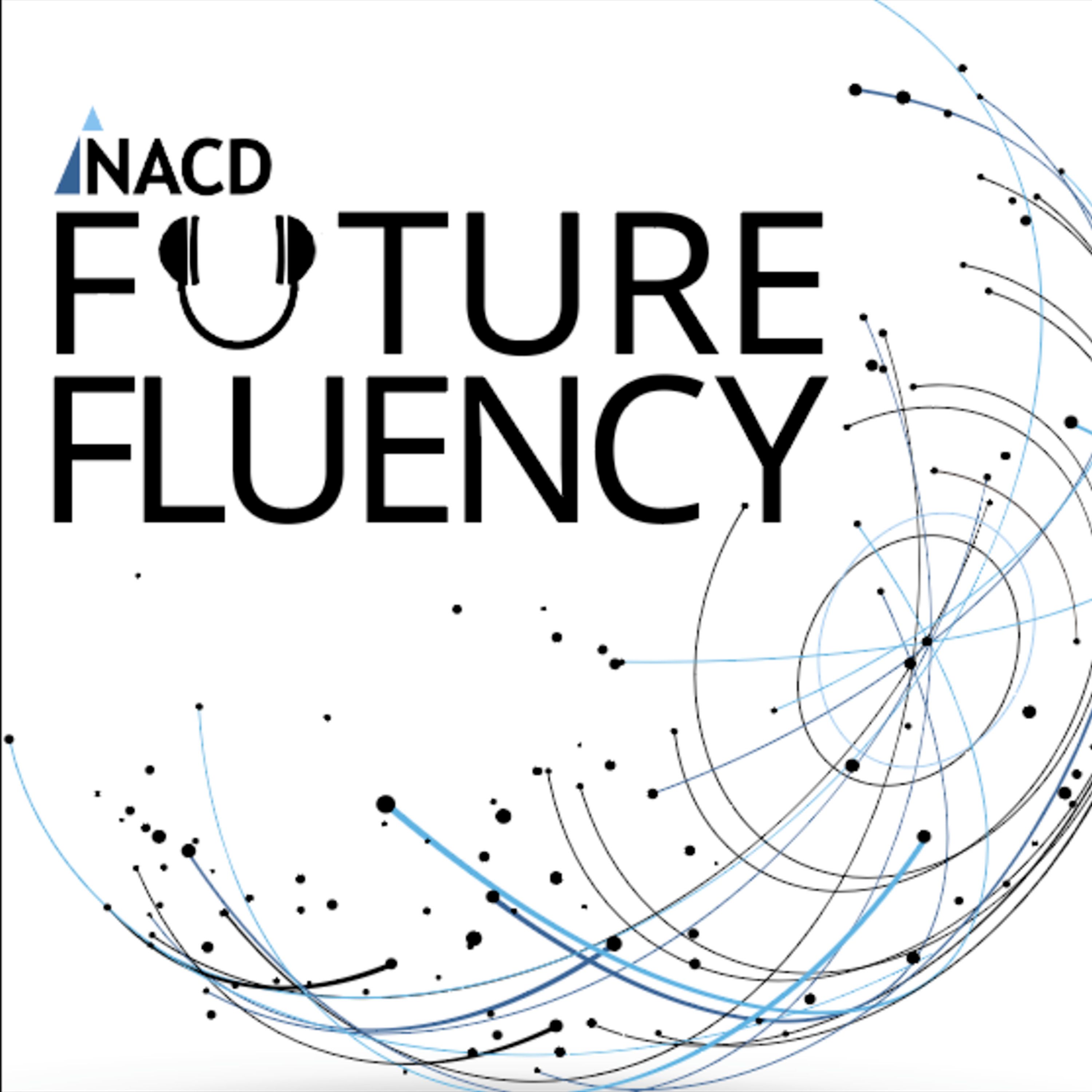 Future FluencyBiased by NatureTRANSCRIPTPlease click here to view a transcript of this episode of Future Fluency.FEATURED GUESTSLisa Feldman BarrettLisa Feldman Barrett is a University Distinguished Professor of psychology and director of the Interdisciplinary Affective Science Laboratory at Northeastern University, with research appointments at Massachusetts General Hospital and Harvard Medical School. She also educates lawyers, judges, and other legal actors about emotion, neuroscience, and the law for her work for Harvard’s Center for Law, Brain and Behavior. Her research focuses on the nature of emotion from the perspectives of both ps...2019-05-0230 min
Future FluencyBiased by NatureTRANSCRIPTPlease click here to view a transcript of this episode of Future Fluency.FEATURED GUESTSLisa Feldman BarrettLisa Feldman Barrett is a University Distinguished Professor of psychology and director of the Interdisciplinary Affective Science Laboratory at Northeastern University, with research appointments at Massachusetts General Hospital and Harvard Medical School. She also educates lawyers, judges, and other legal actors about emotion, neuroscience, and the law for her work for Harvard’s Center for Law, Brain and Behavior. Her research focuses on the nature of emotion from the perspectives of both ps...2019-05-0230 min Science(ish)LimitlessMichael decides it’s time to get cerebral and opts for Neil Burger’s ‘Limitless’. We’re talking brain myths, we’re talking nootropics, and of course, we’re talking/taking modafinil.
Featuring: Professor Barbara Sahakian2018-03-1530 min
Science(ish)LimitlessMichael decides it’s time to get cerebral and opts for Neil Burger’s ‘Limitless’. We’re talking brain myths, we’re talking nootropics, and of course, we’re talking/taking modafinil.
Featuring: Professor Barbara Sahakian2018-03-1530 min Naked Scientists, In Short Special Editions PodcastCan brain training slow the progression to Alzheimers?Millions of people worldwide are affected by Alzheimer's Disease; Terry Pratchett was famously a victim of the condition, which progressively robs sufferers of their mental faculties. At the moment, no therapies are available to halt the disease, but it might be possible to keep patients functioning well, for longer, with a bit of brain-training. Cambridge University neuroscientists have invented a memory-boosting app called GameShow. Katie Haylor went to see the game's co-inventor Barbara Sahakian and lead scientist George Savulich... Like this podcast? Please help us by supporting the Naked Scientists2017-07-1004 min
Naked Scientists, In Short Special Editions PodcastCan brain training slow the progression to Alzheimers?Millions of people worldwide are affected by Alzheimer's Disease; Terry Pratchett was famously a victim of the condition, which progressively robs sufferers of their mental faculties. At the moment, no therapies are available to halt the disease, but it might be possible to keep patients functioning well, for longer, with a bit of brain-training. Cambridge University neuroscientists have invented a memory-boosting app called GameShow. Katie Haylor went to see the game's co-inventor Barbara Sahakian and lead scientist George Savulich... Like this podcast? Please help us by supporting the Naked Scientists2017-07-1004 min Naked Scientists Special Editions ENHANCEDCan brain training slow the progression to Alzheimer's disease? - Naked Scientists Special Editions 17.07.10Millions of people worldwide are affected by Alzheimer's Disease; Terry Pratchett was famously a victim of the condition, which progressively robs sufferers of their mental faculties. At the moment, no therapies are available to halt the disease, but it might be possible to keep patients functioning well, for longer, with a bit of brain-training. Cambridge University neuroscientists have invented a memory-boosting app called GameShow. Katie Haylor went to see the game's co-inventor Barbara Sahakian and lead scientist George Savulich...2017-07-1004 min
Naked Scientists Special Editions ENHANCEDCan brain training slow the progression to Alzheimer's disease? - Naked Scientists Special Editions 17.07.10Millions of people worldwide are affected by Alzheimer's Disease; Terry Pratchett was famously a victim of the condition, which progressively robs sufferers of their mental faculties. At the moment, no therapies are available to halt the disease, but it might be possible to keep patients functioning well, for longer, with a bit of brain-training. Cambridge University neuroscientists have invented a memory-boosting app called GameShow. Katie Haylor went to see the game's co-inventor Barbara Sahakian and lead scientist George Savulich...2017-07-1004 min Naked Special EditionsCan brain training slow the progression to Alzheimer's disease?Millions of people worldwide are affected by Alzheimer's Disease; Terry Pratchett was famously a victim of the condition, which progressively robs sufferers of their mental faculties. At the moment, no therapies are available to halt the disease, but it might be possible to keep patients functioning well, for longer, with a bit of brain-training. Cambridge University neuroscientists have invented a memory-boosting app called GameShow. Katie Haylor went to see the game's co-inventor Barbara Sahakian and lead scientist George Savulich...2017-07-1004 min
Naked Special EditionsCan brain training slow the progression to Alzheimer's disease?Millions of people worldwide are affected by Alzheimer's Disease; Terry Pratchett was famously a victim of the condition, which progressively robs sufferers of their mental faculties. At the moment, no therapies are available to halt the disease, but it might be possible to keep patients functioning well, for longer, with a bit of brain-training. Cambridge University neuroscientists have invented a memory-boosting app called GameShow. Katie Haylor went to see the game's co-inventor Barbara Sahakian and lead scientist George Savulich...2017-07-1004 min University of CambridgeSport Good For Exercise And Teamwork But Is Is Good For Your BrainWe know that sport is good for developing teamwork and exercise is good for your cognition, mood and physical health. However, we also hear about the harmful effects of rugby, boxing and other sports with high risk of concussion on the brain. Join Professor Barbara Sahakian, Professor Peter Hutchinson, Dr Michael Hart, Dr George Savulich and Mike Crofts in a discussion of the benefits and risks of sports, including innovative strategies that aim to promote better brain health.
Presented with the NIHR Brain Injury Heathcare Technology Co-operative2017-05-161h 25
University of CambridgeSport Good For Exercise And Teamwork But Is Is Good For Your BrainWe know that sport is good for developing teamwork and exercise is good for your cognition, mood and physical health. However, we also hear about the harmful effects of rugby, boxing and other sports with high risk of concussion on the brain. Join Professor Barbara Sahakian, Professor Peter Hutchinson, Dr Michael Hart, Dr George Savulich and Mike Crofts in a discussion of the benefits and risks of sports, including innovative strategies that aim to promote better brain health.
Presented with the NIHR Brain Injury Heathcare Technology Co-operative2017-05-161h 25 University of CambridgeFeature - Meet The Professor - Barbara SahakianThis is the audio transcription of the Cambridge Science Festival 2017 programme.2017-02-1402 min
University of CambridgeFeature - Meet The Professor - Barbara SahakianThis is the audio transcription of the Cambridge Science Festival 2017 programme.2017-02-1402 min University of CambridgeFeature - Sex, Lies And Brain Scans - Barbara SahakianThis is the audio transcription of the Cambridge Science Festival 2017 programme.2017-02-1402 min
University of CambridgeFeature - Sex, Lies And Brain Scans - Barbara SahakianThis is the audio transcription of the Cambridge Science Festival 2017 programme.2017-02-1402 min Cambridge Science Festival 2016Will artificial intelligence be superior to the human brain?Artificial intelligence could be of great benefit to society, producing innovative discoveries and providing humans with more leisure time. However, workers are concerned that, more and more, jobs are being taken over by artificial intelligence. We can see this in the context of the current trend for robots to work in car factories and driverless trains, and also in the future trend for driverless cars. The questions are will artificial intelligence be superior to the human brain? Can artificial intelligence ever be as creative as the human brain? And will artificial intelligence contribute to the benefit of society? We have...2016-04-0458 min
Cambridge Science Festival 2016Will artificial intelligence be superior to the human brain?Artificial intelligence could be of great benefit to society, producing innovative discoveries and providing humans with more leisure time. However, workers are concerned that, more and more, jobs are being taken over by artificial intelligence. We can see this in the context of the current trend for robots to work in car factories and driverless trains, and also in the future trend for driverless cars. The questions are will artificial intelligence be superior to the human brain? Can artificial intelligence ever be as creative as the human brain? And will artificial intelligence contribute to the benefit of society? We have...2016-04-0458 min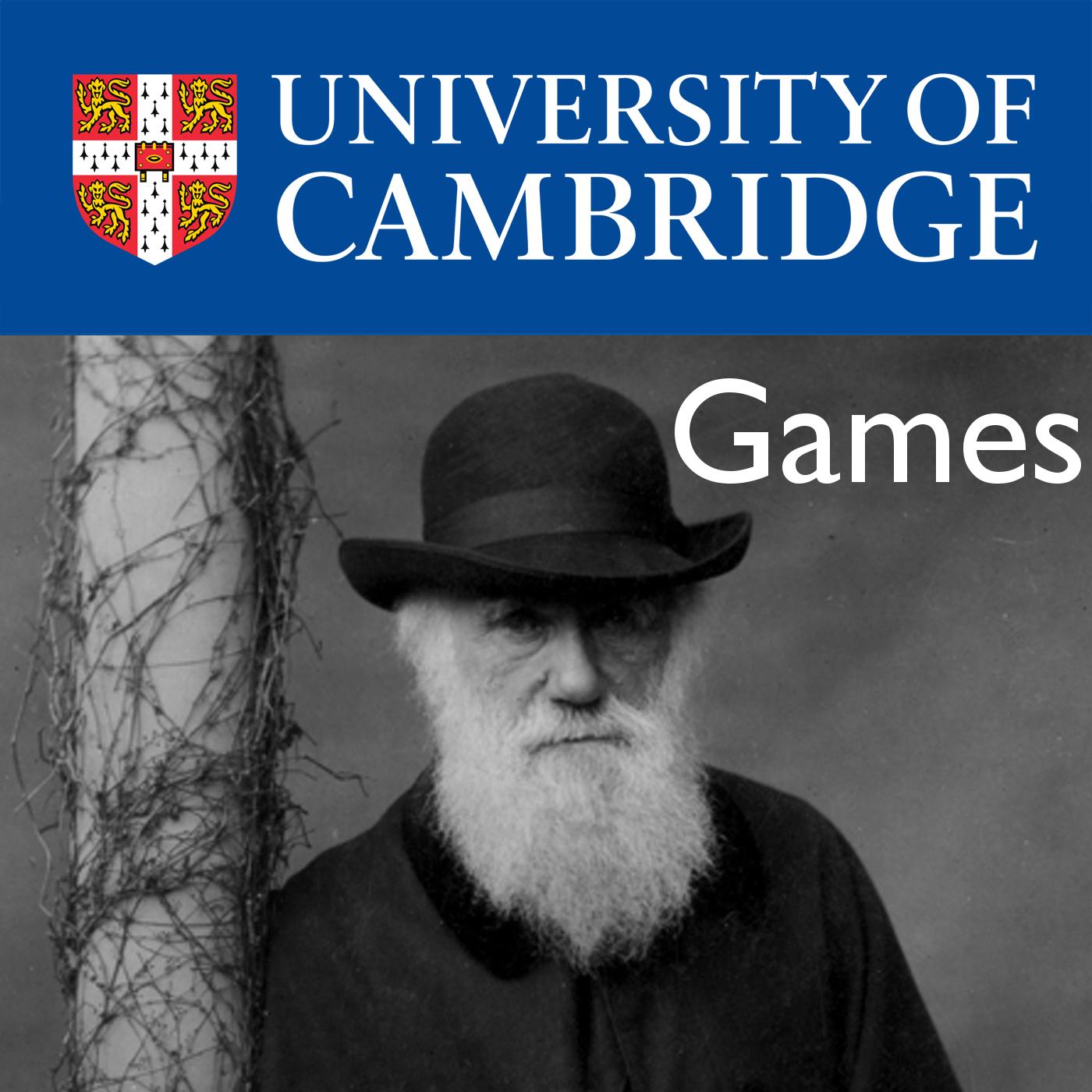 Games – Darwin College Lecture Series 2016Games for the BrainThere is nothing more important than good brain health and wellbeing throughout our lives. Yet while many people are concerned with their physical health and utilise wearable tech and mobile devises to monitor their exercise, steps, heart rate etc, we are not yet using technology to enhance our brain health and wellbeing. In this lecture, I will discuss how neuroscientists can work together with other experts in game development, IT and computing to develop enjoyable games for enhancing cognition, such as memory. In addition, I will discuss how we can use games to improve cognition, motivation and the ability to...2016-03-031h 09
Games – Darwin College Lecture Series 2016Games for the BrainThere is nothing more important than good brain health and wellbeing throughout our lives. Yet while many people are concerned with their physical health and utilise wearable tech and mobile devises to monitor their exercise, steps, heart rate etc, we are not yet using technology to enhance our brain health and wellbeing. In this lecture, I will discuss how neuroscientists can work together with other experts in game development, IT and computing to develop enjoyable games for enhancing cognition, such as memory. In addition, I will discuss how we can use games to improve cognition, motivation and the ability to...2016-03-031h 09 Games – Darwin College Lecture Series 2016Games for the Brain"Games for the Brain"
Professor Barbara Sahakian, University of Cambridge
Darwin College Lecture Series 2016 – Games2016-03-011h 09
Games – Darwin College Lecture Series 2016Games for the Brain"Games for the Brain"
Professor Barbara Sahakian, University of Cambridge
Darwin College Lecture Series 2016 – Games2016-03-011h 09 Naked Neuroscience, from the Naked ScientistsRobots in SocietyMeet Brian, the robot programmed to help look after the elderly. Plus we explore the role of robots in combat and in the classroom and we explore the ethics of how science shapes society. This special Naked Neuroscience podcast series, supported by the Wellcome Trust, reports from the International Neuroethics Society annual meeting at the AAAS headquarters in Washington DC and features guest robots Brian, Casper and Tangy, as well as human contributors Goldie Nejat, Barbara Sahakian, Paul Root Wolpe and James Giordano. Like this podcast? Please help us by supporting the Naked Scientists2014-11-1824 min
Naked Neuroscience, from the Naked ScientistsRobots in SocietyMeet Brian, the robot programmed to help look after the elderly. Plus we explore the role of robots in combat and in the classroom and we explore the ethics of how science shapes society. This special Naked Neuroscience podcast series, supported by the Wellcome Trust, reports from the International Neuroethics Society annual meeting at the AAAS headquarters in Washington DC and features guest robots Brian, Casper and Tangy, as well as human contributors Goldie Nejat, Barbara Sahakian, Paul Root Wolpe and James Giordano. Like this podcast? Please help us by supporting the Naked Scientists2014-11-1824 min Spring 2014 | Public lectures and events | Audio and pdfLiterary Festival 2014: Self-Help: myth or reality?Contributor(s): Dr Julian Baggini, Professor Paul Dolan, Professor Barbara J Sahakian | Is the idea of being able to improve yourself just a myth or can we really change ourselves for the better? This panel will discuss how behavioural science, neurological science, the arts and philosophy can change your life. Julian Baggini(@microphilosophy) is the author of several books, including Welcome to Everytown: A Journey into the English Mind, The Ego Trick and, most recently, The Virtues of the Table. He has written for numerous newspapers and magazines, including the Guardian, the Financial Times, Prospect and the New Statesman, as...2014-02-251h 22
Spring 2014 | Public lectures and events | Audio and pdfLiterary Festival 2014: Self-Help: myth or reality?Contributor(s): Dr Julian Baggini, Professor Paul Dolan, Professor Barbara J Sahakian | Is the idea of being able to improve yourself just a myth or can we really change ourselves for the better? This panel will discuss how behavioural science, neurological science, the arts and philosophy can change your life. Julian Baggini(@microphilosophy) is the author of several books, including Welcome to Everytown: A Journey into the English Mind, The Ego Trick and, most recently, The Virtues of the Table. He has written for numerous newspapers and magazines, including the Guardian, the Financial Times, Prospect and the New Statesman, as...2014-02-251h 22 Spring 2014 | Public lectures and events | VideoLiterary Festival 2014: Self-Help: myth or reality?Contributor(s): Dr Julian Baggini, Professor Paul Dolan, Professor Barbara J Sahakian | Is the idea of being able to improve yourself just a myth or can we really change ourselves for the better? This panel will discuss how behavioural science, neurological science, the arts and philosophy can change your life. Julian Baggini(@microphilosophy) is the author of several books, including Welcome to Everytown: A Journey into the English Mind, The Ego Trick and, most recently, The Virtues of the Table. He has written for numerous newspapers and magazines, including the Guardian, the Financial Times, Prospect and the New Statesman, as...2014-02-251h 22
Spring 2014 | Public lectures and events | VideoLiterary Festival 2014: Self-Help: myth or reality?Contributor(s): Dr Julian Baggini, Professor Paul Dolan, Professor Barbara J Sahakian | Is the idea of being able to improve yourself just a myth or can we really change ourselves for the better? This panel will discuss how behavioural science, neurological science, the arts and philosophy can change your life. Julian Baggini(@microphilosophy) is the author of several books, including Welcome to Everytown: A Journey into the English Mind, The Ego Trick and, most recently, The Virtues of the Table. He has written for numerous newspapers and magazines, including the Guardian, the Financial Times, Prospect and the New Statesman, as...2014-02-251h 22 Faraday Institute LecturesBoosting the Brain: how far would you go?Cambridge Festival of Ideas Panel Discussion with Prof. Barbara Sahakian, Prof. Raymond Tallis, Revd Dr Alasdair Coles and Dr Pete Moore2013-11-041h 29
Faraday Institute LecturesBoosting the Brain: how far would you go?Cambridge Festival of Ideas Panel Discussion with Prof. Barbara Sahakian, Prof. Raymond Tallis, Revd Dr Alasdair Coles and Dr Pete Moore2013-11-041h 29 Naked Special Editions13.06.26 - How do we make the right decisions?Clinical Neuropsychologist Barbara Sahakian explains why some people find it difficult to make decisions that are beneficial to them, and how drugs could help.2013-06-2817 min
Naked Special Editions13.06.26 - How do we make the right decisions?Clinical Neuropsychologist Barbara Sahakian explains why some people find it difficult to make decisions that are beneficial to them, and how drugs could help.2013-06-2817 min Naked Scientists, In Short Special Editions PodcastHow do we make the right decisions?Clinical Neuropsychologist Barbara Sahakian explains why some people find it difficult to make decisions that are beneficial to them, and how drugs could help. Like this podcast? Please help us by supporting the Naked Scientists2013-06-2617 min
Naked Scientists, In Short Special Editions PodcastHow do we make the right decisions?Clinical Neuropsychologist Barbara Sahakian explains why some people find it difficult to make decisions that are beneficial to them, and how drugs could help. Like this podcast? Please help us by supporting the Naked Scientists2013-06-2617 min The Cambridge Series at the Hay Festival 2013Bad moves: how decision-making goes wrongBarbara Sahakian, Professor of Neuroscience
Professor Sahakian discusses the process of normal decision-making – our strategies, biases that affect us and influential factors. She will describe the abnormal patterns found in patients with conditions such as severe depression, Alzheimer’s and accidental brain damage. Examining how the brain can be manipulated to improve cognitive function in these patients, she will consider the use and the ethical questions of ‘smart drugs’.2013-06-0456 min
The Cambridge Series at the Hay Festival 2013Bad moves: how decision-making goes wrongBarbara Sahakian, Professor of Neuroscience
Professor Sahakian discusses the process of normal decision-making – our strategies, biases that affect us and influential factors. She will describe the abnormal patterns found in patients with conditions such as severe depression, Alzheimer’s and accidental brain damage. Examining how the brain can be manipulated to improve cognitive function in these patients, she will consider the use and the ethical questions of ‘smart drugs’.2013-06-0456 min Start the WeekThe Origin and Future of LifeOn Start the Week Jonathan Freedland journeys from the origin of life to the possibilities of new life-forms with the geneticist Adam Rutherford. Steve Jones updates the Bible from the point of view of modern science and Barbara Sahakian looks at our ability to make decisions, and whether 'smart drugs' should be used to boost our reactions. The artist Susan Aldworth is inspired by neuro-scientific imagery to explore the relationship between mind and body in her portraits of those with epilepsy and in doing so asks how this material corresponds or contrasts with the subject's sense of self.2013-04-1541 min
Start the WeekThe Origin and Future of LifeOn Start the Week Jonathan Freedland journeys from the origin of life to the possibilities of new life-forms with the geneticist Adam Rutherford. Steve Jones updates the Bible from the point of view of modern science and Barbara Sahakian looks at our ability to make decisions, and whether 'smart drugs' should be used to boost our reactions. The artist Susan Aldworth is inspired by neuro-scientific imagery to explore the relationship between mind and body in her portraits of those with epilepsy and in doing so asks how this material corresponds or contrasts with the subject's sense of self.2013-04-1541 min auburncom on HuffdufferBBC: DiscoveryBarbara Sahakain -- Jim Al-Khalili talks to neuroscientist Barbara Sahakian about her Life Scientific.2012-08-2900 min
auburncom on HuffdufferBBC: DiscoveryBarbara Sahakain -- Jim Al-Khalili talks to neuroscientist Barbara Sahakian about her Life Scientific.2012-08-2900 min DiscoveryThe Life Scientific : Barbara Sahakian - NeuroscientistJim Al-Khalili meets Cambridge University neuroscientist Barbara Sahakian. She talks about her Life Scientific finding drugs to slow down the memory losses that happen in Alzheimer's disease. She worked in some of the first memory clinics that were set up in the US and the UK to help people who had problems remembering and has developed tests to find out if peoples' forgetfulness is the first sign of dementia. More recently she has turned her attention to drugs that can improve the performance of surgeons or pilots or other professions where it is...2012-08-2717 min
DiscoveryThe Life Scientific : Barbara Sahakian - NeuroscientistJim Al-Khalili meets Cambridge University neuroscientist Barbara Sahakian. She talks about her Life Scientific finding drugs to slow down the memory losses that happen in Alzheimer's disease. She worked in some of the first memory clinics that were set up in the US and the UK to help people who had problems remembering and has developed tests to find out if peoples' forgetfulness is the first sign of dementia. More recently she has turned her attention to drugs that can improve the performance of surgeons or pilots or other professions where it is...2012-08-2717 min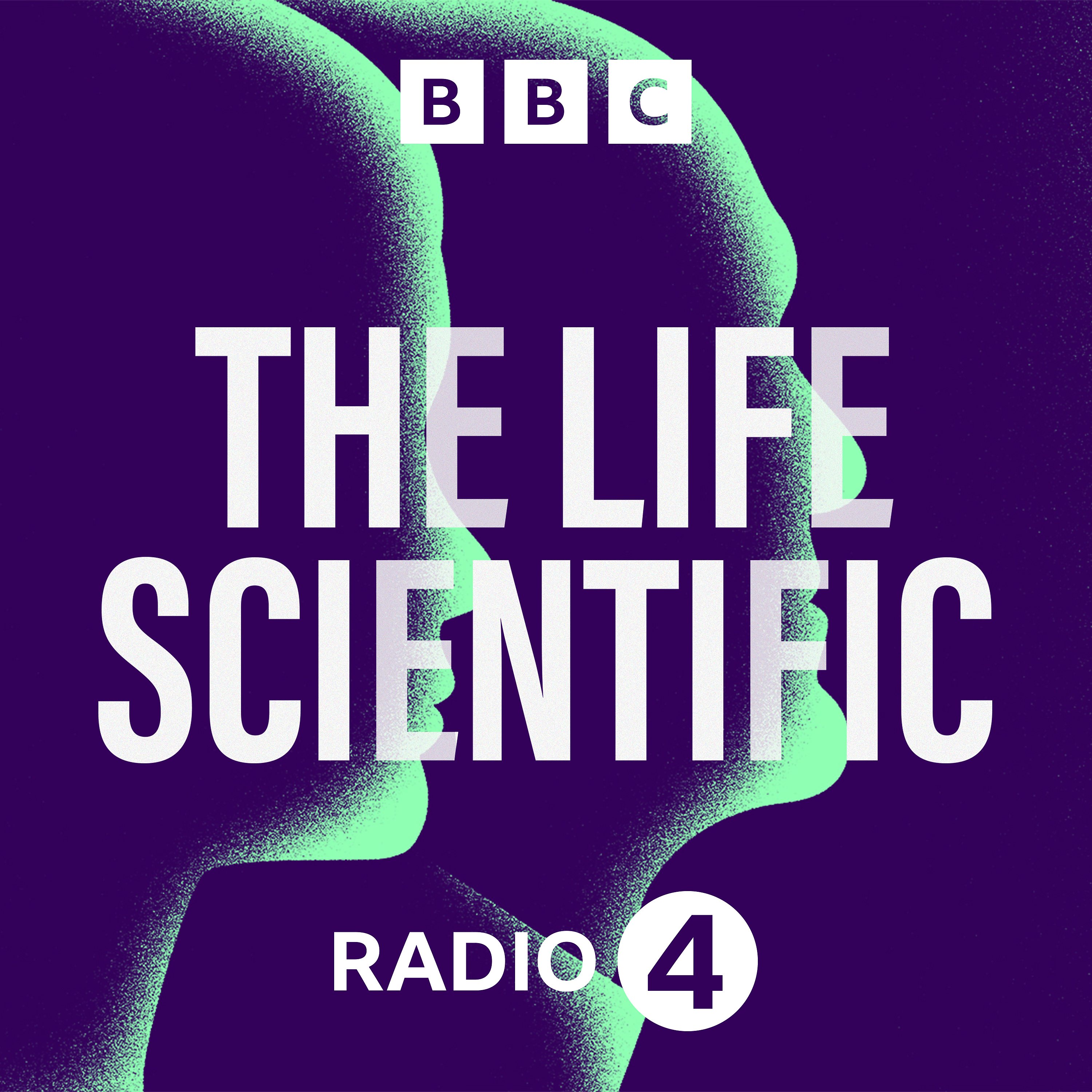 The Life ScientificBarbara SahakianJim Al-Khalili meets neuroscientist Barbara Sahakian. Neurotransmitters are chemicals in the brain which effect our memory and understanding, and neuropharmacology is the study of drugs which can be used in conditions like Alzheimer's disease or depression. But can new treatments improve the performance of surgeons or pilots and could they even be used to make us more entrepreneurial?2012-05-2927 min
The Life ScientificBarbara SahakianJim Al-Khalili meets neuroscientist Barbara Sahakian. Neurotransmitters are chemicals in the brain which effect our memory and understanding, and neuropharmacology is the study of drugs which can be used in conditions like Alzheimer's disease or depression. But can new treatments improve the performance of surgeons or pilots and could they even be used to make us more entrepreneurial?2012-05-2927 min Start the Week27/06/2011Andrew Marr explores the limits of science and art in this week's Start the Week. The philosopher and neuroscientist Raymond Tallis mounts an all-out assault on those who see neuroscience and evolutionary theory as holding the key to understanding human consciousness and society. While fellow scientist Barbara Sahakian explores the ethical dilemmas which arise when new drugs developed to treat certain conditions are used to enhance performance in the general population. And the gerontologist Aubrey de Grey looks to the future when regenerative medicine prevents the process of aging.
Producer: Katy Hickman.2011-06-2741 min
Start the Week27/06/2011Andrew Marr explores the limits of science and art in this week's Start the Week. The philosopher and neuroscientist Raymond Tallis mounts an all-out assault on those who see neuroscience and evolutionary theory as holding the key to understanding human consciousness and society. While fellow scientist Barbara Sahakian explores the ethical dilemmas which arise when new drugs developed to treat certain conditions are used to enhance performance in the general population. And the gerontologist Aubrey de Grey looks to the future when regenerative medicine prevents the process of aging.
Producer: Katy Hickman.2011-06-2741 min